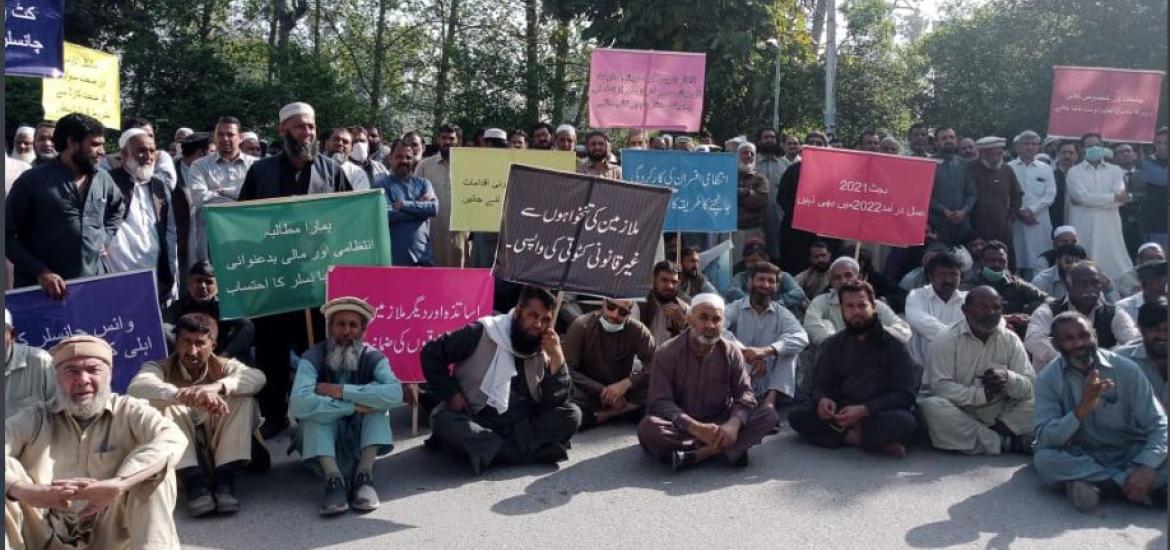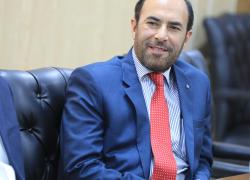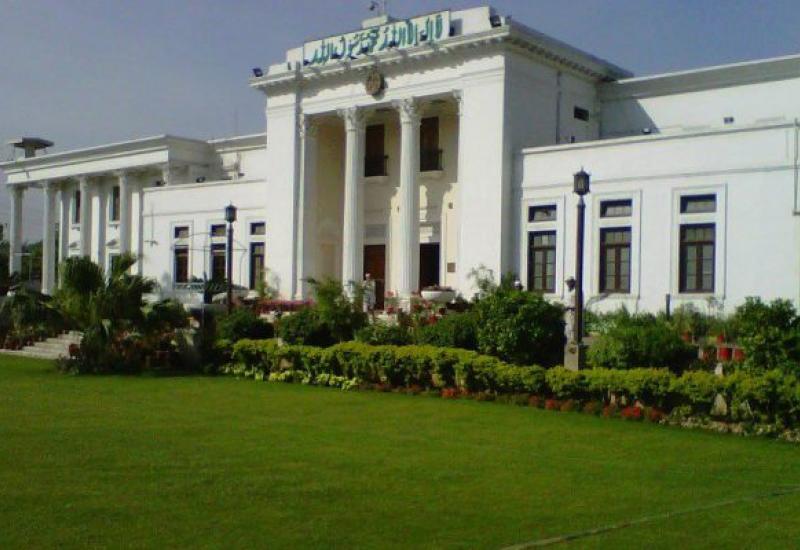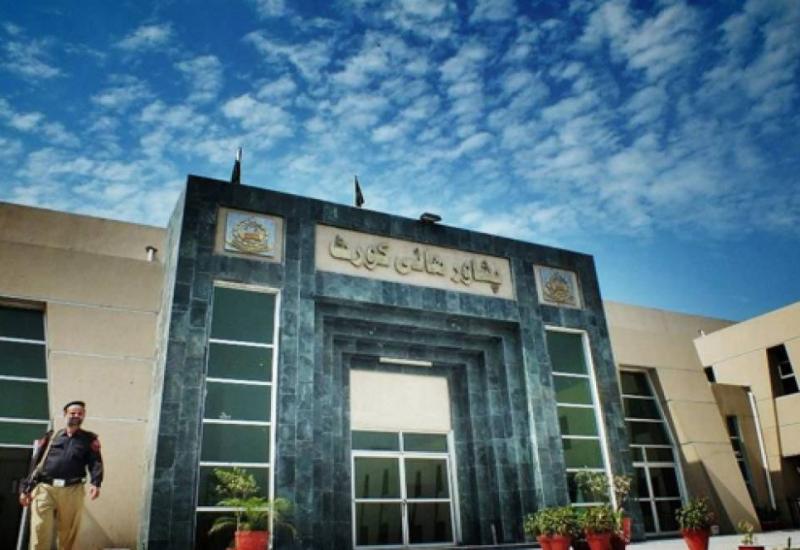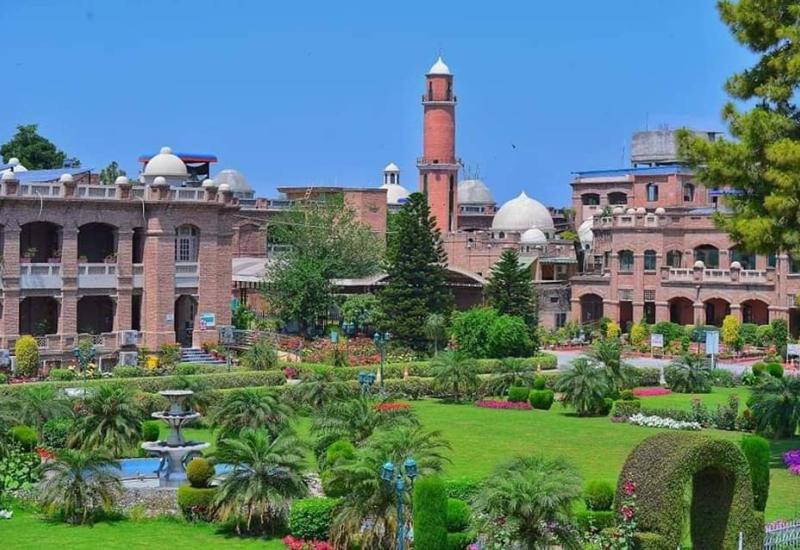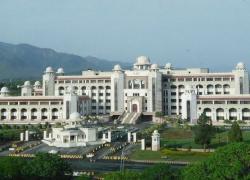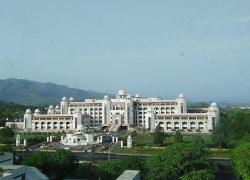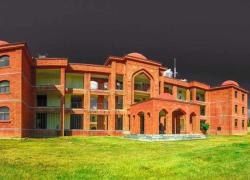Universities’ Employees demonstration to press for their demands of salary increase and allocation of sufficient funds to the Universities
Thousands of the teaching faculty, university administrative officers, support staff and non-teaching employees of all caders of different universities staged a protest in the University of Peshawar main campus to press the provincial government for acceptance of their genuine demands of salary increase and allocation of sufficient funds to the universities.
Unfortunately, whenever the government announces any increase in pay and pension for the government employees as a part of the budget, the university employees have to stage a protest to press the government and university authorities to allow increase in pay and pension to the university employees. In the face of the current financial crunch confronted by almost all major universities in Khyber Pakhtunkhwa, this has become a routine for the universities’ employees as the government failed to release the required amount of funds to the universities making it difficult for the universities’ financial managers to pay salaries and pension to the employees.
This state of affairs generated serious apprehension in the public sector universities across the province, during the last couple of years. The issue has been raised through social as well print and electronic media. The academics, faculty members and university administrators spoke a lot about it. Nevertheless, the issue failed to grab the attention of the people at the helm of affairs.
This situation has adversely impacted the academic activities in the universities as public sector universities predominantly rely upon government financial support to run the business. Without robust government backing, it would not be possible to run the academic as well as the administrative business of the universities. In the backdrop of serious budgetary constraints, the public sector universities have other matters of serious concern than concentrating on academics and research activities.
This blog post discusses how the universities’ employees’ protest demonstration to press for their genuine demands of salary increase and allocation of sufficient funds to the universities has adversely impacted the academic life in the universities and what the government should do to resolve the issue on war footings.
This current spell of demonstration was jointly organised by the Federation of the Public Sector Universities Administrative Officers Association (FAPUAOA), Federation of All Pakistan Universities Academic Staff Association (FAPUASA) and the Employees Federation Khyber Pakhtunkhwa at the University of Peshawar.
President of Officers Associations Dr Muhammad Ilyas Khan, FAPUASA President Dr Jamil Ahmad Chitrali, provincial president Dr Izhar Ahmed and President of Employers Federation, Salahuddin, addressed the demonstration. In their speeches, they expressed concern over the ongoing financial crises and administrative vacuum faced by the universities and held the provincial government as well as the bureaucracy responsible for it.
They expressed serious concern over the universities’ bid to increase students’ fee in the name of resource mobilisation and stressed that the universities’ administration should refrain from any such move burdening the students and their parents disproportionately. They claimed that the proposed increase in tuition fees would put too great a financial burden on the students and their families. Their demands mainly include:
- Increase in the salaries of the universities’ employees as per budgetary increase by the government for government employees
- Allocation of sufficient funds to the universities out of the provincial government kitty to bear at least 30 per cent of the universities’ expenditure and swift release of the already committed grants/ bailout package for the universities.
- Formation of provincial Higher Education Commission.
- Ending undue interference in the affairs of the universities and avoiding violation of the Khyber Pakhtunkhwa Universities’ Act by the concerned authorities including government functionaries
- Urgent amendments in the Khyber Pakhtunkhwa Universities’ Act in consultation with all stakeholders.
- Not changing the terms of service – allowances and fringe benefits of the university employees illegally and unilaterally by the government.
The protesters expressed their resolve to continue with their agitation till their demands were met by the provincial government otherwise they would stage a protest in front of Banigala in Islamabad if the provincial government failed to show seriousness in addressing their genuine demands by the deadline of July 20th.
The financial crisis has created a great deal of fear and apprehension in the public sector universities during the last couple of months. The employees of these universities are concerned that if the government failed to provide the desperately needed funds to the universities, then they would not be able to pay salaries to the employees for the coming months. They warned that if universities were not provided with the much-needed funds on an urgent basis then they would have no other option but to give a call for a protest in front of Banigala.
Education and Health, being the top priorities of the PTI government and being provincial subjects, the provincial government has to come forward to rescue the universities in this hour of dire need by providing sufficient funds to the universities out of the provincial government’s kitty.
Besides, the Vice-Chancellors shall have to explore other sources of revenue generation such as university-industry linkages and consultancies. Besides, the Vice-Chancellors shall have to persuade the provincial government to shoulder the responsibility to help out the universities to overcome the prevalent financial crisis, otherwise, this bad situation will turn worst to the extent that the universities shall not be able to pay even salaries to their employees let alone realizing their strategic vision and playing its due role of national economic development in the knowledge-based economy.

